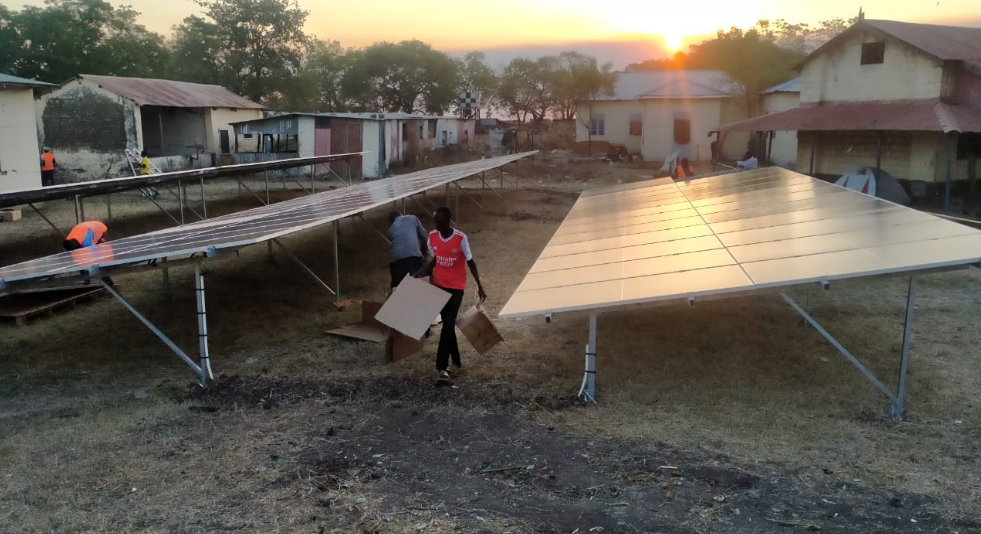Member Highlight: Energy Peace Partners

What prompted your organization to join the CEBA community?
Energy Peace Partners (EPP) is a nonprofit organization that develops innovative climate and finance solutions to promote greater resilience and peace in fragile, climate vulnerable, and energy poor countries, primarily in sub-Saharan Africa. EPP is excited to join the CEBA community in order to be part of the premier clean energy industry association. EPP developed the “Peace Renewable Energy Credit” (P-REC), which provides energy customers a new procurement solution to maximize the decarbonization and positive human impact for every megawatt-hour of renewable energy they procure globally.
EPP is excited to join the CEBA community. Membership will allow us to introduce new partners to our work, including the unique opportunities we are providing for customers to achieve their goals for purpose-driven, next generation procurement.
The P-REC is a quality label affixed to qualifying I-RECs from high-impact renewable energy projects in fragile, energy poor countries. P-RECs deliver critical additional revenue for high impact projects. This revenue helps developers to partially finance new renewable energy generation assets and/or fund projects with shared community benefits like public street lighting and hospital solar electrification.
Figure 1: Map of the target countries for P-REC projects
What is your biggest challenge when it comes to clean energy procurement?
We know that customers want procurement solutions that can advance diverse impact-related goals. These impacts range from delivering additional community benefits and reducing value chain electricity use-related emissions to optimizing for avoided emissions impact and supporting new renewable energy projects. However, customers are often unfamiliar with high-impact offerings like P-RECs. This is why we are excited to participate with fellow CEBA members in various programs and initiatives, such as the Beyond the Megawatt and Next Generation Carbon-free Electricity initiatives.
What does the future of clean energy look like for your organization?
The P-REC is a powerful market instrument for customers to incorporate into their procurement strategy because it is an I-REC with unique social impact-related benefits, such as first-time electrification and greater economic and peacebuilding opportunities.
EPP envisions a future where a large customer community makes P-RECs part of their global procurement strategy to expand carbon-free electricity access everywhere, including climate-vulnerable countries that are most at-risk of conflict. To support this effort, we are launching the buyer-supported P-REC Aggregation Facility (PAF) in the coming year to unlock $90 million in new renewable energy capacity in 11 fragile states in sub-Saharan Africa.
In addition, EPP supports the expansion of I-REC market access in a growing number of our target countries and is the authorized International Renewable Energy Certificate (I-REC) issuer in the Democratic Republic of Congo (DRC), South Sudan, Somalia, Chad, Ethiopia, and Haiti.
Figure 2: Overview about how P-RECs work and deliver high-impact renewable energy projects

What is the most interesting clean energy project you worked on during your time with the organization?
Luckily, the P-REC isn’t just a theoretical solution. The first examples of customer P-REC transactions include:
- Microsoft’s first and second transactions in Goma, DRC;
- Google’s transaction in Garamba, DRC;
- Block’s first and second transactions in Malakal, South Sudan.
These purchases expanded renewable energy access in communities in the DRC and South Sudan, along with improved safety and security, increased livelihood opportunities, and improved public health services. Early research also indicates that there is an increase in overall levels of positive peace in these communities.
Envision a 90% carbon-free U.S. electricity system by 2030– what is the next step towards a carbon-free energy future?
EPP has observed five markets trends that are shaping clean energy markets and procurement decisions, including:
- Purpose-driven procurement, where P-RECs support new projects that create (carbon-free) electricity access in fragile countries as well as deliver co-benefits that provide the building blocks for greater peace and resilience;
- Value chain decarbonization, where P-RECs provide a solution to cover the electricity use associated with global value chains, where customers can procure P-RECs in the countries that overlap with their suppliers and/or customers based on value chain partners’ electricity use;
- Avoided emissions optimization, where P-RECs enable communities to reduce or leapfrog over reliance on diesel, coal, and charcoal, resulting in significant avoided emissions potential to customers;
- Purchaser-enabled procurement, where P-RECs enable customers to provide catalytic funding for new distributed mini-grids and/or community projects like street lighting or hospital solar electrification, where all P-RECs provide proof of customers’ financial support; and
- Climate-related disclosure regulation management, where P-RECs offer a market instrument that shows a given customer procured a carbon-free megawatt-hour along with verifiable community benefits that can be applied to emission reduction and social impact claims in disclosures about its direct operations and global value chains.
We look forward to increasing awareness among the CEBA community about how the P-REC supports these emerging customer priorities.
—
Get Involved
Learn more about joining the CEBA community.
